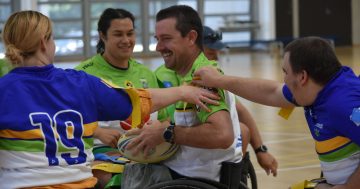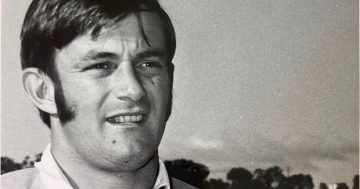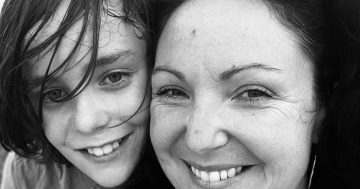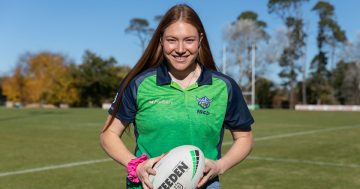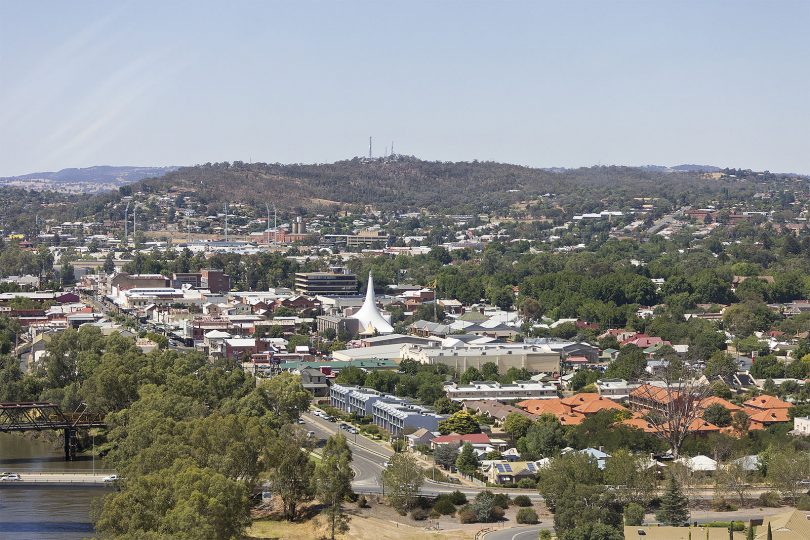
Aerial view of Central Wagga Wagga. What makes this town a producer of sports champions? Photo: Wikimedia Commons.
When I started looking at Australia’s top sporting cities per head of population, I felt it would be hard to go past Queanbeyan.
That is, until I took a closer look at Wagga Wagga.
I discovered that it’s daylight between Wagga and every other city region of comparable size, not just in Australia, but potentially globally.
I well remember a study conducted by the AIS in 2005 which looked at the reasons why Wagga Wagga produced so many champions.
The exposure to many sports was one of the reasons given as to why Wagga has produced champion sportspeople.
A number of sportspeople associated with Wagga Wagga were born elsewhere but had their formative years in the city. In many ways, Wagga’s success is due to the high level of sport and coaching, along with the support for sport in the city.
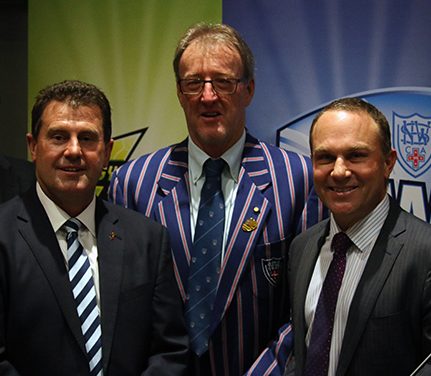
Mark Taylor, Geoff Lawson and Michael Slater in 2016. Photo: Cricket NSW.
Former Australian test cricket captain Mark Taylor was born in Leeton, but his formative years were in Wagga. Taylor captained Australia in 50 tests.
His opening partner in 78 test innings was fellow Wagga product Michael Slater, and fast bowler Geoff Lawson started at Wagga Wagga Public School before playing 46 tests.
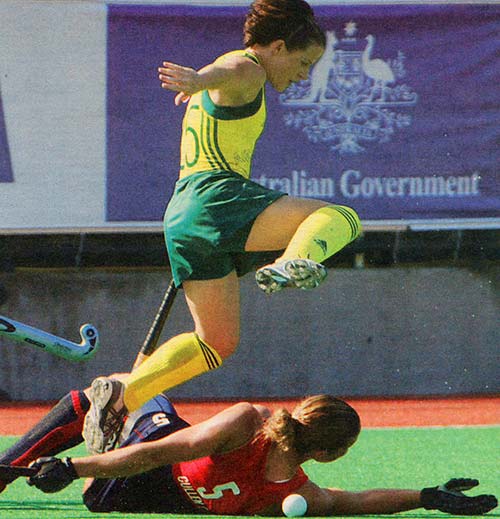
Melanie Wells was the world’s best player in the early2000s. Photo: Museum of the Riverina.
Wagga’s Melanie Wells (née Twitt) was named the World Women’s Hockey Player of the Year between 2002 and 2004. Fellow Wagga Wagga hockey player Adam Commens played 143 internationals for the Kookaburras before going on to coach a number of national teams, including the Hockeyroos.
Alicia Lucas (née Quirk) won gold at the Rio Olympics in the women’s 7s while fellow Wagga athlete Sally Shipard made her debut with the Matilda’s at just 16 years of age before going on to become one of Australia’s greatest women’s soccer players with 57 games.
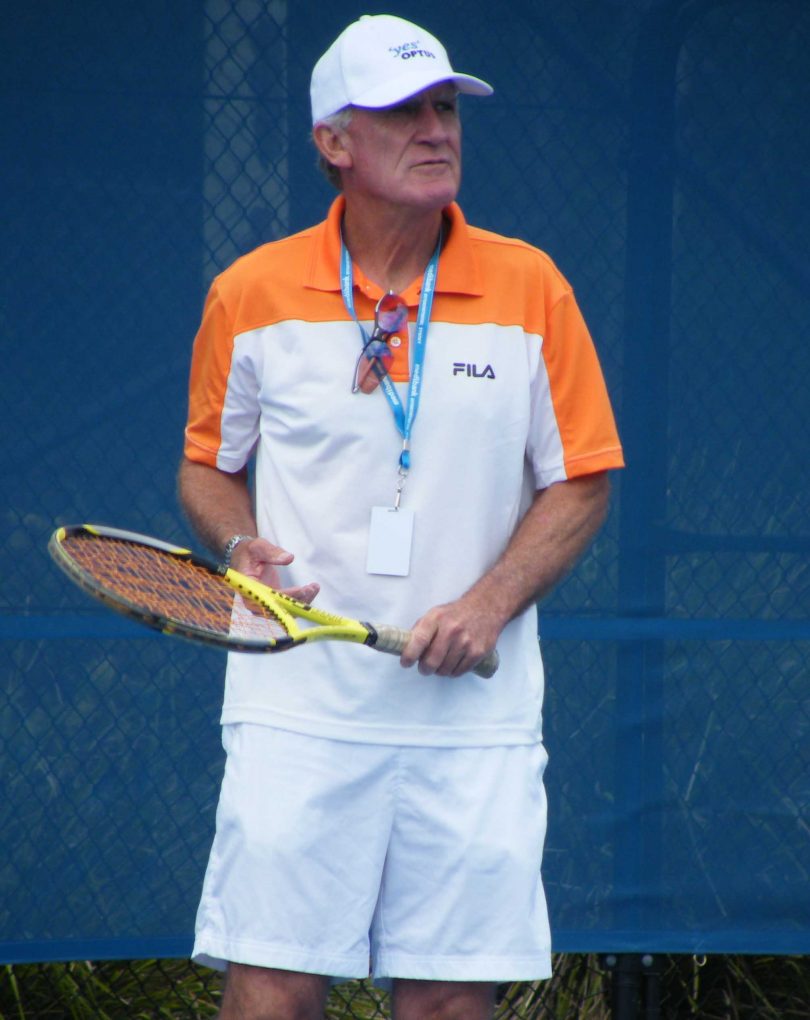
Tony Roche (2009) was not only a great player but coached and mentored greats, including Roger Federer. Photo: Naparazzi.
Tony Roche was born in Tarcutta, just down the road from Wagga. He joined the Wagga Wagga Tennis Club when he was 13 years old.
Roche won the French Open in 1966 as well as making the finals another five times. He and John Newcombe formed one of the greatest tennis doubles combinations of all time, winning 12 grand slam titles.
Roche then went on to coach Rafter, Lendl, Federer and Hewitt.
AFL champion Paul Kelly was born in West Wyalong before his family moved to Wagga where he played rugby league before switching to Australian Rules at 15 years of age.
Kelly went on to become one of the all-time great players winning the Brownlow in 1995, playing 234 games for the Swans, and he captained the All-Australian team twice.
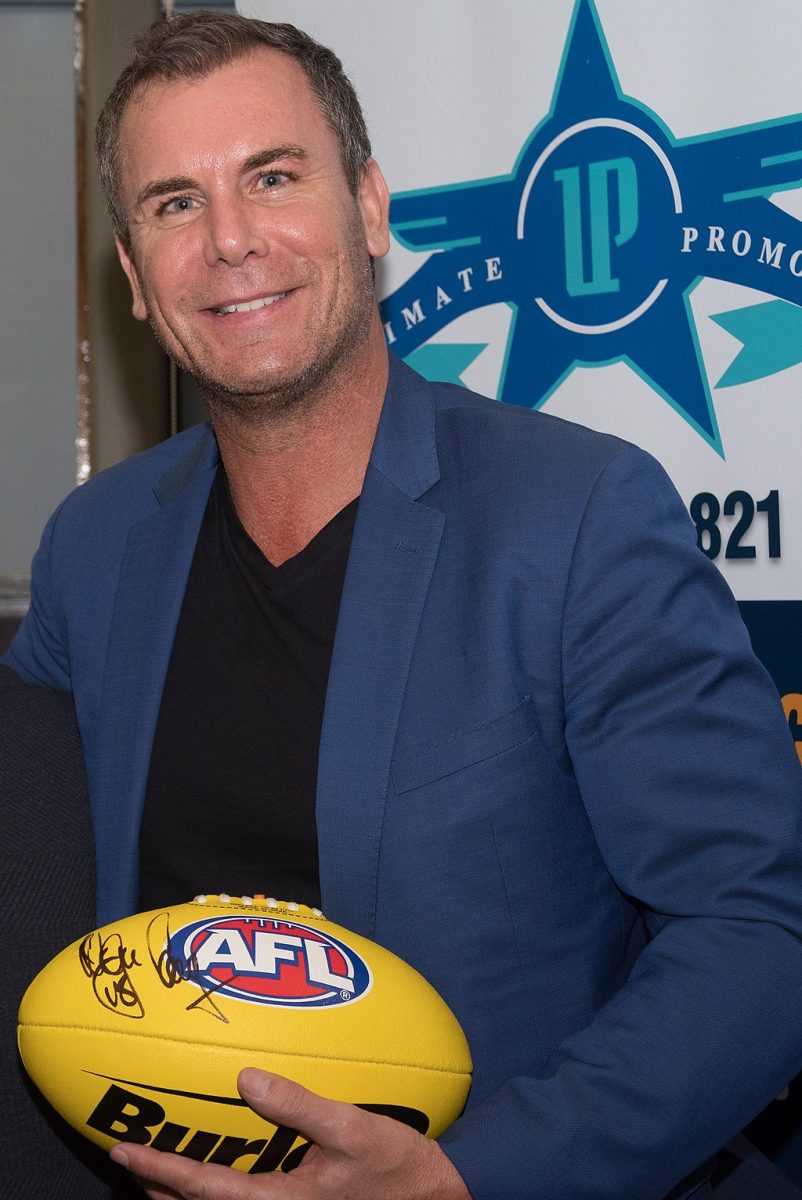
Wayne Carey was named an All-Australian seven times. Photo: Gnangarra.
Not to be outdone, Wagga-born Wayne Carey also played rugby league before switching to AFL. At 21 years of age, Carey became the second-youngest captain in VFL/AFL history when appointed to lead North Melbourne. Carey played 272 AFL games and was named in the All-Australian team seven times.
Cameron Mooney started his football career with Turvey Park, an inner-southern suburb of Wagga, before going on to win three premierships with Geelong.
Another Wagga Wagga product is Harrison Himmelberg who plays for GWS while his brother Elliott is with the Adelaide Crows.
Many years before the Kellys, Careys, Mooneys and Himmelbergs came onto the scene, there was the legendary Wagga-born St Kilda full-forward Billy Mohr. He was one of the leading goal kickers in the VFL. Billy represented Victoria 18 times.
Then there’s the plethora of great rugby league and union players who emerged from Wagga.
The Mortimers of rugby league fame – Steve, Chris, Peter and Glen – hailed from Wagga. One of rugby league’s greatest players, Steve played 272 games for Canterbury.
Although born in Toowoomba, Eels legend Peter Sterling began his football career in Wagga. He went on to win the Golden Boot award for the world’s top player in 1987.
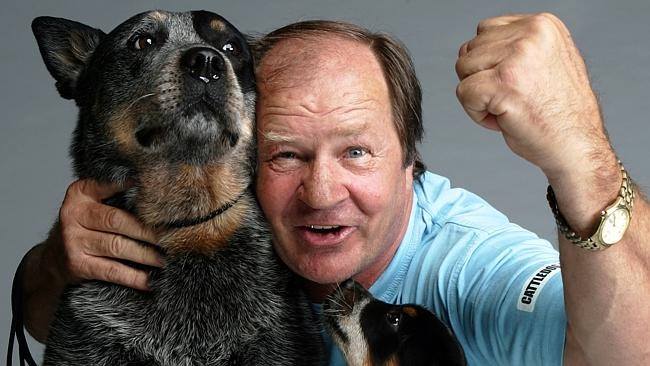
Tommy Raudonikis – a league legend on and off the field. Photo: tommyraudonikis.com.
The list of great rugby league players to come out of the Wagga Wagga region is seemingly endless with players such as Greg Brentnall, Tom Raudonikis and Steve Martin having played their formative years in the city, while South’s premiership-winning player Greg Hawick and Australian captain-coach Arthur Summons made an enormous contribution when they relocated to Wagga.
Eric Weissel played his rugby league career in the Riverina with five clubs including the Wagga Magpies. He was selected to represent NSW and Australia.
Jim Lenehan played 23 tests for the Wallabies stretching from 1957 to 1967. Beres Elwood played 20 tests, and in 1959, was regarded as the best back in the world. Other Wallabies developed in the Wagga Wagga region include Nick Henderson, John Langford, Ken McMullen and Arthur Tonkin.
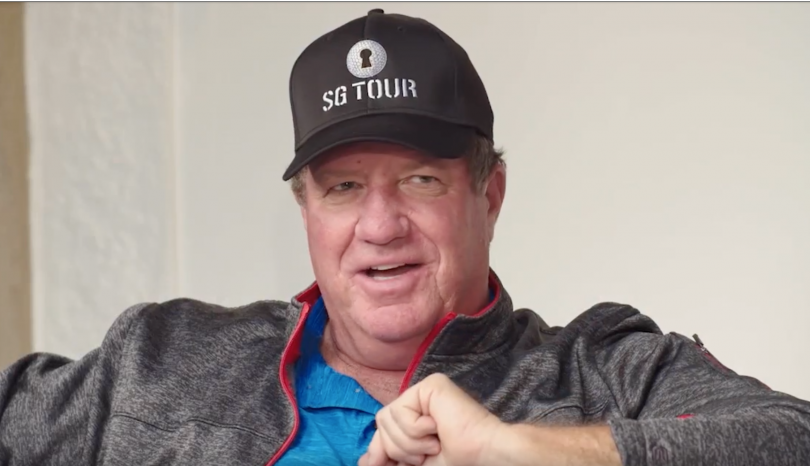
Steve Elkington won the US PGA in 1995. Photo: Secret Golf screenshot.
Golfer Steve Ellington was born in Inverell but grew up in Wagga. Ellington won the US PGA title in 1995 and spent more than 50 weeks in the world top ten list.
Wagga isn’t confined to producing great footballers, cricketers, tennis players, hockey players and golfers.
Temora-born but Wagga-raised Brad Kahlefeldt won gold in the triathlon at the 2006 Commonwealth Games while Raeleigh Rogers (née Tennant) was also a dominant force nationally in the sport.
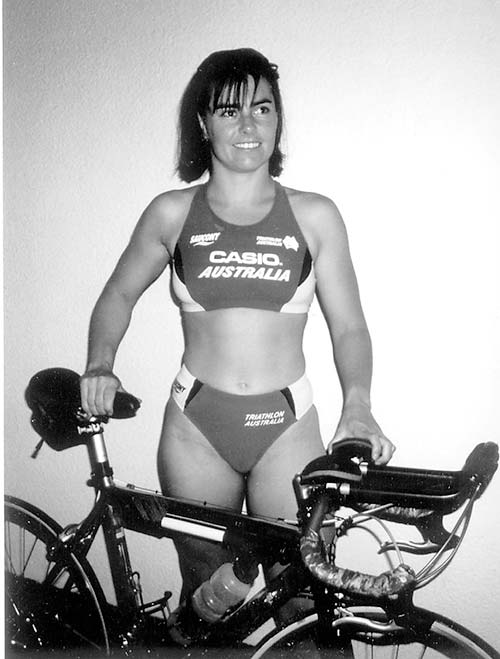
Raeleigh Tennant was ACT Triathlete of the Year from 1997 to 2001. Photo: Museum of the Riverina.
Other Wagga Wagga sporting champions include jockey Scobie Beasley, snooker player Quinten Hann, Olympic silver track medallist Patrick Dwyer, NBL All Star Greg Hubbard, motorcyclist Terry McDonald, Australian softballers Amanda Gooden (née Wheeler), Brooke Baverstock (nee Frauenfelder) and Kim Horne, shooters Barney Rooke, Maree Schuster (nee Rooke), Ken Cooke, Philip Bain and Grahame Crowe, volleyballer Bruce McKinnon, and Australian indoor hockey representative, Graeme McLennan.
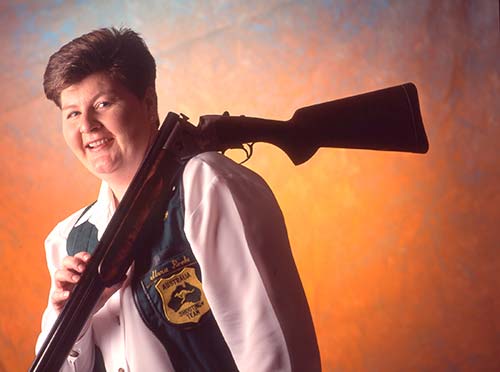
Maree started in competitive shooting after growing tired of being carted around to gun clubs with her father. The rest is history. Photo: Museum of the Riverina.
Other significant Wagga sportspeople include Australian lawn bowlers Norma Richardson and Joyce McKee, Australian orienteering champion Allison Jones, Australian diving representative Kate Henderson. And there are many more including cyclists, sailing champions and dance champions.
If there is a greater range and quality of sporting champions to emerge from a population of people anywhere in the world I am yet to see it. Wagga Wagga is Australia’s greatest sporting city by a country mile.












